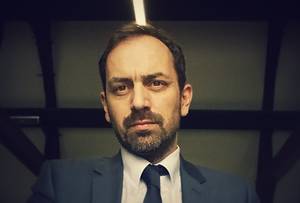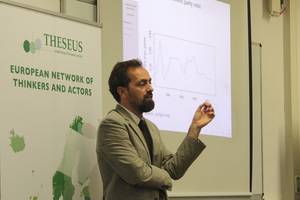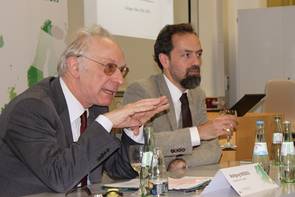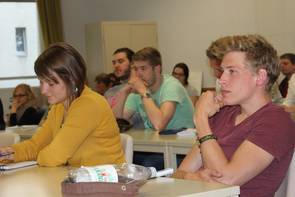

Prof. Dr. Emiliano Grossman
 |
Emiliano Grossman is Associate Professor at Sciences Po in Paris, working at the Centre d'études européennes (CEE). He teaches courses on EU politics, interest-group politics and comparative politics at Sciences Po and is co-convenor of the Master’s Programme in European Affairs.
Grossman's research is mainly focused on economic and financial regulation in the EU as well as on political institutions. More generally, he focuses on the variety of state-society relations in the EU and related challenges. Moreover, he has worked on the political systems of EU member states and the influence of the EU on politics, policy-making and political institutions in France.
Currently, Grossman is working especially on political agenda-setting in France and aims at creating quantitative indicators of political activity for roughly the past 30 years. He is also interested in media influence in politics. Grossman is author and editor of various books and articles dealing with different aspects of his research fields.
Course: "Democracy in Times of Crisis"
Emiliano Grossman holds the THESEUS Visiting Professorship at the University of Cologne for the Spring Term 2015. In his class "Democracy in times of crisis" the French researcher aims at re-examining the theoretical and empirical foundations of democracy and their performance in a period of crisis and continuing globalization.
Why do tensions exist between a collective government and the individual liberty? What can we say about recent developments and problems of democracy? How do citizens and their political representatives interact? Are their democratic prototypes to follow? Can democracy be re-invented and adapted to changing contexts? These are some of the questions that Grossman wants to approach with his students. Prior to the start of his seminar in April 2014, we have talked with him about seminar contents and his expectations of teaching in Cologne.
Inaugural Lecture: "Contemporary capitalism and the future of democracy"
How will the future of democracy look like? This is one of the central question which drives French scientist and THESEUS Visiting Professor Emiliano Grossman in his research. In his inaugural lecture on 12 May 2015, he shared his reflections with students, scientists and interested citizens.
"We have to analyse the relationship between supply- and demand side of politics more closely and in new ways if we want to understand the contemporary political economy", stated Grossman right at the beginning of his speech, speaking about politicians on the one side and voters on the other side. He criticized a supply side focus in politics in comparative political economy. "It arises from the understanding that citizens have to adapt to available political options", said Grossman. "This system does no longer function."
In his view, voters have become more critical. "They are losing their trust in established parties and partly also their political system." The consequence was that they voted for radical parties or that they no longer came to elections, a development which was further intensified through the current crisis letting people rethink the quality of their government.
A phenomenon that additionally worries the researcher and increases his demand for a new approach to democracy is the fact that the chances of government parties to get re-elected were continuously shrinking. "This endangers the quality of our democratic systems", argued Grossman. "It is important that governments have the perspective of several years of service to stand up for good and sustainable politics."
Which aspects do voters base their judgement on? Grossman found that people forgot about party promises, but looked at general government performance. "If the growth rate of a country such as Germany is slightly higher than that of its neighbour states, people are happy", summarised Grossman.
What his findings exactly mean for the future of democracy shall be subject of his ongoing research, said Grossman. His lecture should first of all serve as an illustration of the general need to approach and analyse the citizens-politicians relationship in new ways.
Emiliano Grossman’s inaugural lecture was opened by the introductory words of Jean Monnet Chair holder Prof. Wolfgang Wessels and THESEUS Project Officer Aline Bartenstein. It was followed by a critical discussion with the audience as well as a reception in which participants could clear up final questions and network with others. Questions raised during the discussion addressed the convergence of today’s party programs, political pressures, consequences of the increasing internationalisation on party politics, and the possible end of a nation-state-based-mind-set of citizens and politicians that could lead to deeper European integration.


